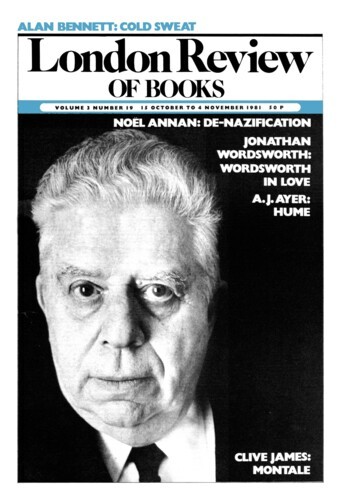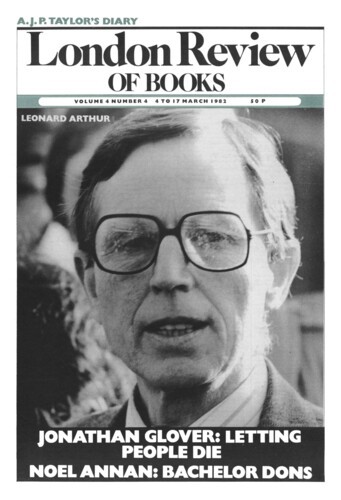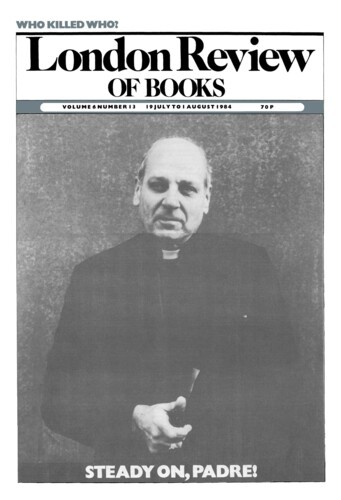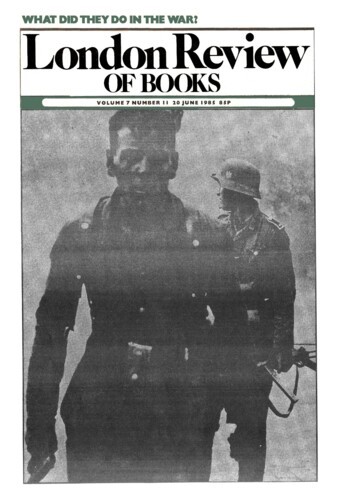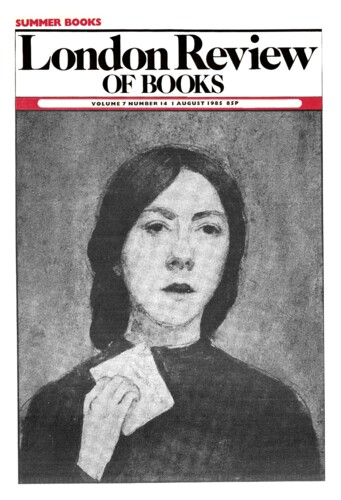De-Nazification
Noël Annan, 15 October 1981
Investigative journalism has many triumphs to its credit. It toppled a President of the United States. It has exposed, through the hard leg-work of tiny teams of sleuths, the evasions of corporations, ministries, crooks in local government, and the common shysters whose trickery Esther Rantzen mocks in tones of cloying surprise. The press are right to blow fanfares in their own praise because investigative journalism is precisely the sort of activity which those who sneer at the free press want to muzzle in the interest of ‘objectivity’ and ‘responsible’ journalism.
